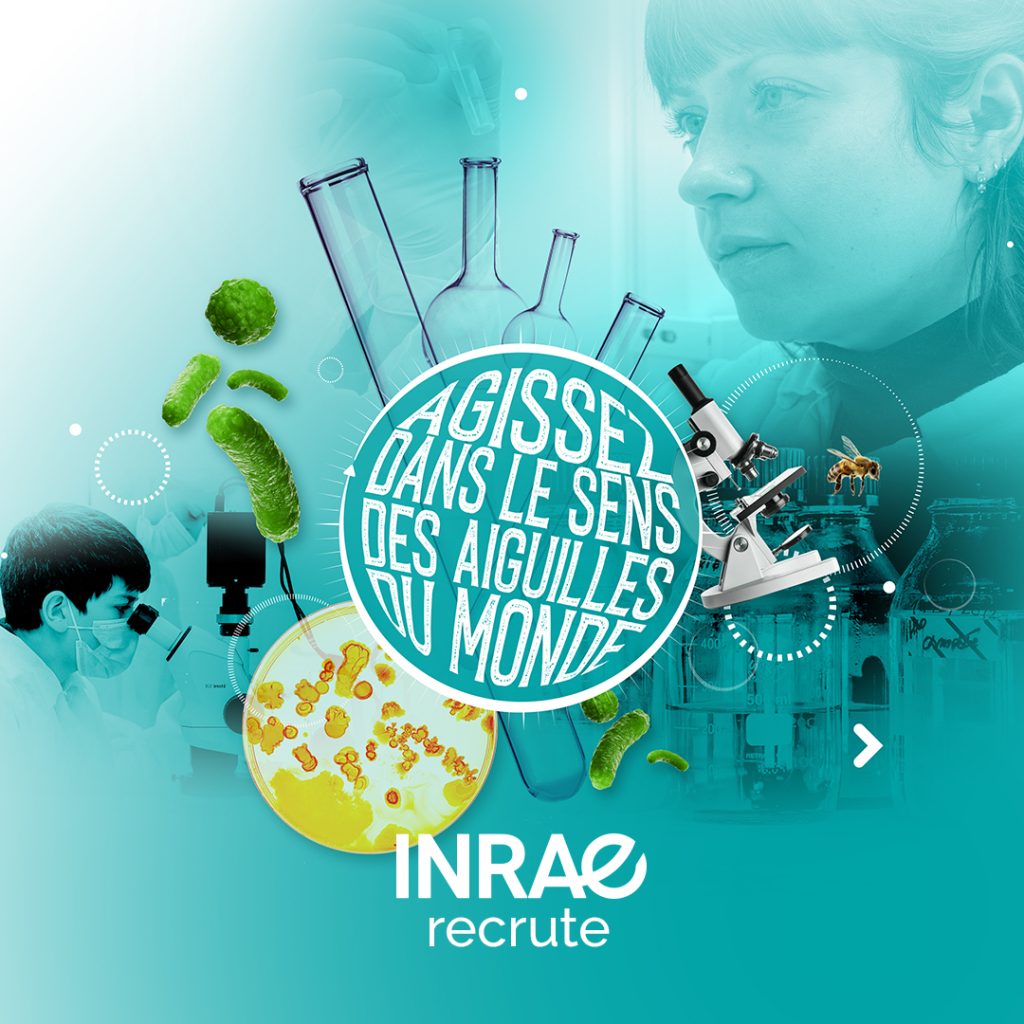

PhD H/F
Référence : 2024-1609564
- Fonction publique : Fonction publique de l'État
-
Employeur :
Institut National de Recherche pour l'Agriculture, l'Alimentation et l'Environnement (INRAE)
The French National Research Institute for Agriculture, Food, and the Environment (INRAE) is a public research establishment. It is a community of 12,000 people. - Localisation : 69280 Marcy-L'Etoile
Partager la page
Veuillez pour partager sur Facebook, Twitter et LinkedIn.
- Nature de l’emploi Emploi ouvert uniquement aux contractuels
-
Nature du contrat
CDD de 3 ans
- Expérience souhaitée Débutant
-
Rémunération (fourchette indicative pour les contractuels) 25 200€ € brut/an
- Catégorie Catégorie A+ (Encadrement supérieur - Autres emplois fonctionnels)
- Management Non
- Télétravail possible Non renseigné
Vos missions en quelques mots
The intensification of livestock production is a major factor influencing the emergence of zoonotic and animal pathogens. This process can lead to a complex mix of diverse modes of animal production and distribution. However, it is poorly understood how the resulting networks – through which animals are raised, traded and consumed – may shape pathogen transmission, persistence and evolution, especially in regions where the risk of disease emergence is high. In Bangladesh, where poultry production is rapidly intensifying, avian influenza viruses, including the highly pathogenic H5N1 subtype, are endemic and highly prevalent. Additionally, the country faces significant challenges with food-borne pathogens and antimicrobial resistance.
This PhD project aims to explore the influence of poultry production and distribution network structures on pathogen transmission, and assess the effectiveness of structural interventions to mitigate disease risk. The student will develop mechanistic models, as well as use a novel modelling framework, EPINEST, to simulate the spread of avian influenza viruses in Bangladesh, where a wealth of data are readily available on the network structure, viral prevalence and genetic sequences. A key focus will be to generate phylodynamic analytical outputs from genetic data to inform the mechanistic models. Depending on the student’s interest, it may then be possible to consider other health hazards (food-borne pathogens, AMR genes) and/or simulate behavioural adaptations of network actors.
Through this PhD programme, the student will develop robust skills in mechanistic modelling and phylodynamic analyses. Furthermore, as part of an international collaboration, the candidate will thrive in a stimulating interdisciplinary environment. This setting will not only enhance their research skills but also broaden their professional network and expose them to diverse scientific perspectives and methodologies.
Profil recherché
- Completion of a postgraduate degree, or at least an undergraduate degree, in epidemiology, network science, biostatistics, computational biology, mathematics, physics, or another relevant quantitative discipline
- Proficiency in both written and spoken English
- Willingness to supervise research degree students, and to be able to work as part of a multidisciplinary team
- Knowledge in mathematical modelling, a prior experience in quantitative analyses and in modelling the spread of infectious diseases would be an asset, as well as proficiency in R and/or a computer programming language such as C/C++ or Python
Niveau d'études minimum requis
- Niveau Niveau 7 Master/diplômes équivalents
Compétences attendues
Completion of a postgraduate degree, or at least an undergraduate degree, in epidemiology, network science, biostatistics, computational biology, mathematics, physics, or another relevant quantitative discipline
Proficiency in both written and spoken English
Willingness to supervise research degree students, and to be able to work as part of a multidisciplinary team
Knowledge in mathematical modelling, a prior experience in quantitative analyses and in modelling the spread of infectious diseases would be an asset, as well as proficiency in R and/or a computer programming language such as C/C++ or Python
Langues
- Anglais Autonome

Éléments de candidature
Documents à transmettre
Personnes à contacter
Qui sommes-nous ?
NOTRE AMBITION : AGIR POUR LA VIE, L’HUMAIN, LA TERRE
Premier organisme de recherche spécialisé au monde en agriculture, alimentation et environnement, INRAE est né le 1er janvier 2020 de de la fusion entre l’INRA et IRSTEA. Nous sommes une communauté de travail de 12 000 personnes, avec plus de 200 unités de recherche et une quarantaine d’unités expérimentales implantées dans 18 centres sur toute la France.
Notre Mission ?
Face à l’augmentation de la population, au changement climatique, à la raréfaction des ressources et au déclin de la biodiversité, INRAE construit des solutions pour des agricultures multi-performantes, une alimentation de qualité et une gestion durable des ressources.
Pour répondre à ces grands enjeux mondiaux, nous avons besoin de renfort dans nos équipes. Des métiers de la recherche aux métiers de l’appui, l’INRAE recrute à tout niveau de diplôme (du CAP/BEP à Bac+8) !
Rejoignez une communauté engagée et agissez pour l’intérêt général !
Descriptif du service
The PhD student will be primarily based in the EPIA unit, on the VetAgroSup campus near Lyon, France, and collaborate closely with the Royal Veterinary College (United Kingdom), Chattogram Veterinary and Animal Science University and the Bangladesh Livestock Research Institute (Bangladesh). The position will involve on-site visits at the Royal Veterinary College.
À propos de l'offre
-
Salary increases every year, in accordance with the amended decree of 29 August 2016 setting the remuneration of contractual doctoral students.
-
Susceptible d'être vacant à partir du 01/10/2024
-
Chercheuse / Chercheur


